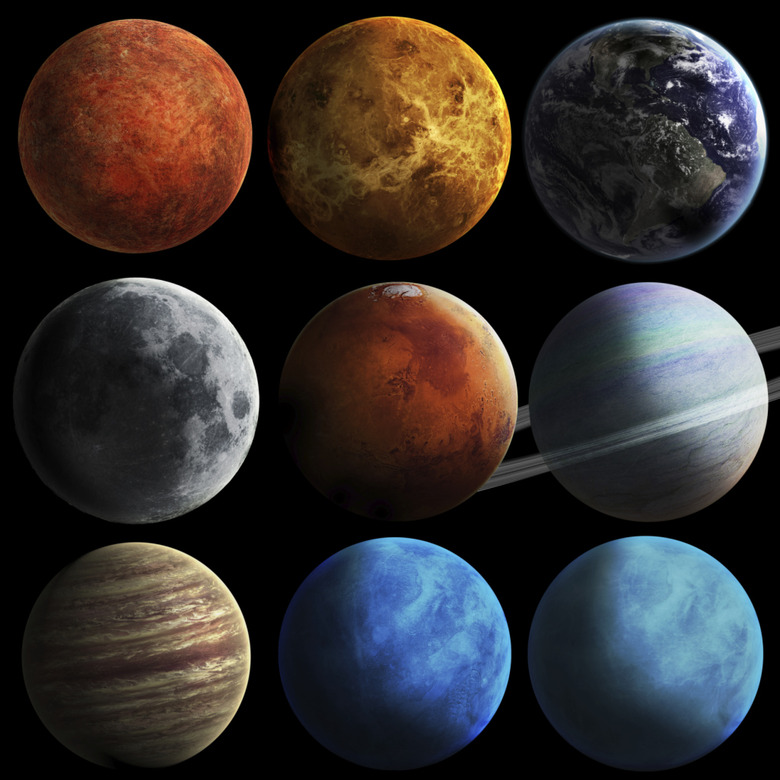How To Measure The Density Of A Planet
The physical density of any object is simply its mass divided by its volume; density is measured in units such as pounds per cubic foot, grams per cubic centimeter or kilograms per cubic meter. When calculating the density of a planet, look up its mass and radius, the latter of which is the distance from the surface to the center. Because planets are roughly spherical, calculate the volume of a sphere using the radius. Then divide the mass by the volume of the sphere to get the density.
Step 1
Find the planet's mass and diameter. For example, Earth's mass is about 6,000,000,000,000,000,000,000,000 kg and its radius measures 6,300 km.
Step 2
Enter the radius in the calculator. Multiply by 1,000 to convert kilometers to meters. Cube this number by pressing the "x^3" key; alternatively, you can press the "x^y" key, enter the number three and then press "equals." Multiply by the number pi — or 3.1416 — multiply by four and then divide by three. Store the result by pressing the "M+" or other memory key. The figure you see is the planet's volume in cubic meters. To continue the example, 6,300 km times 1,000 meters/km = 6,300,000 meters. Cubing it gives 250,000,000,000,000,000,000. Multiplying by pi times 4/3 yields 1,047,400,000,000,000,000,000 cubic meters.
Step 3
Key the planet's mass into the calculator. Press the divide key, then recall the volume figure stored in the calculator's memory. Press the equals key. This result is the planet's density in units of kilograms per cubic meter. In our example, dividing 6,000,000,000,000,000,000,000,000 kg by 1,047,400,000,000,000,000,000 cubic meters results in a density of about 5,730 kg per cubic meter.
TL;DR (Too Long; Didn't Read)
If you have the planet's diameter instead of its radius, divide it by two to get the radius.
Cite This Article
MLA
Papiewski, John. "How To Measure The Density Of A Planet" sciencing.com, https://www.sciencing.com/measure-density-planet-5557152/. 24 April 2017.
APA
Papiewski, John. (2017, April 24). How To Measure The Density Of A Planet. sciencing.com. Retrieved from https://www.sciencing.com/measure-density-planet-5557152/
Chicago
Papiewski, John. How To Measure The Density Of A Planet last modified March 24, 2022. https://www.sciencing.com/measure-density-planet-5557152/
